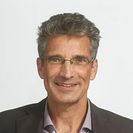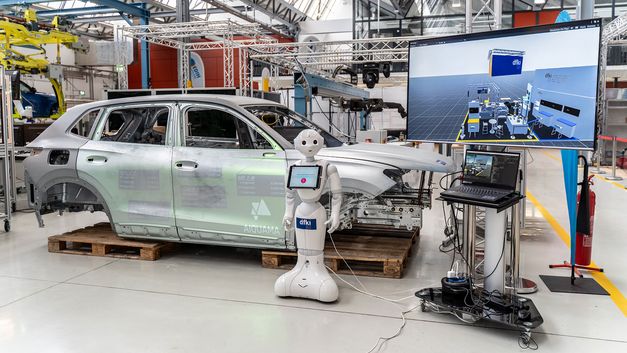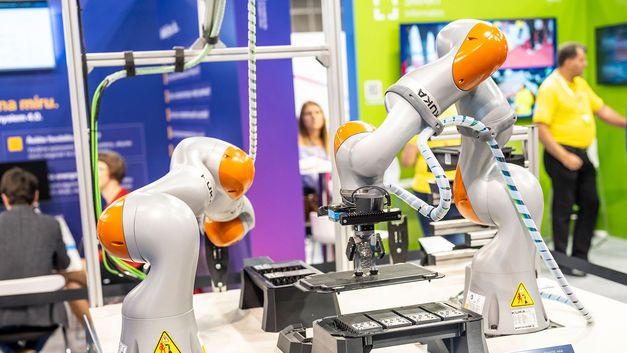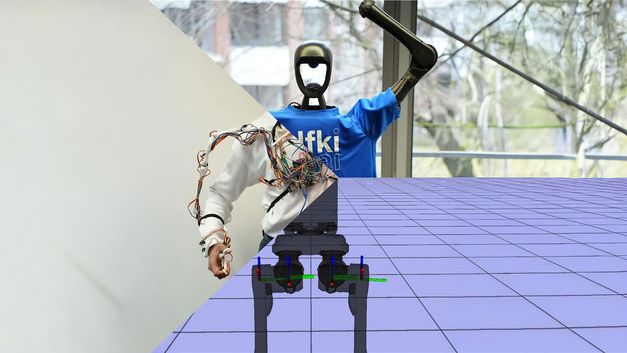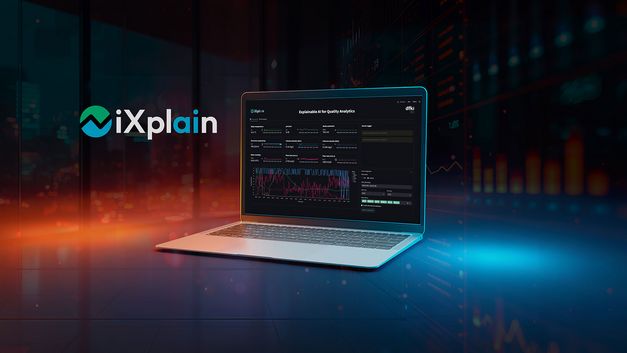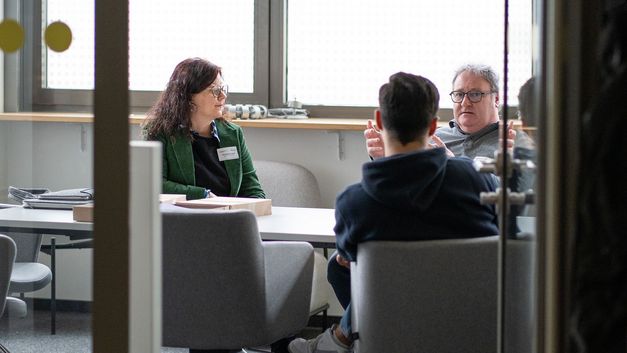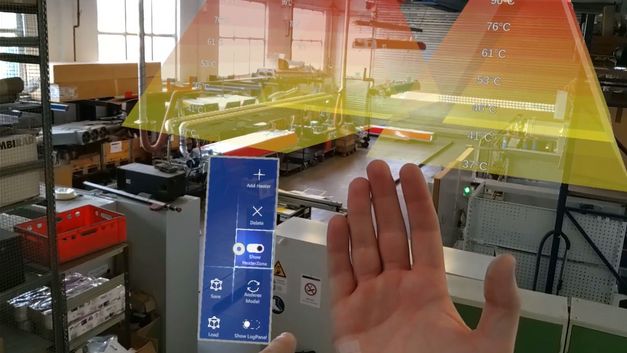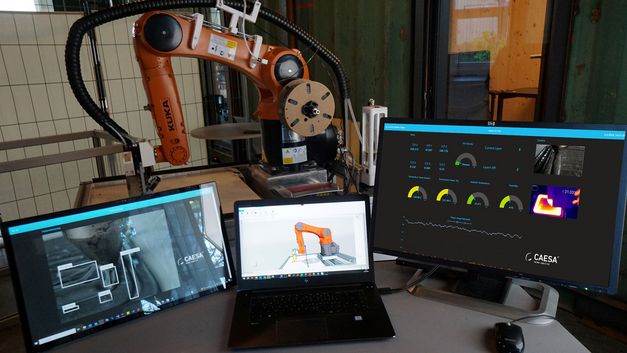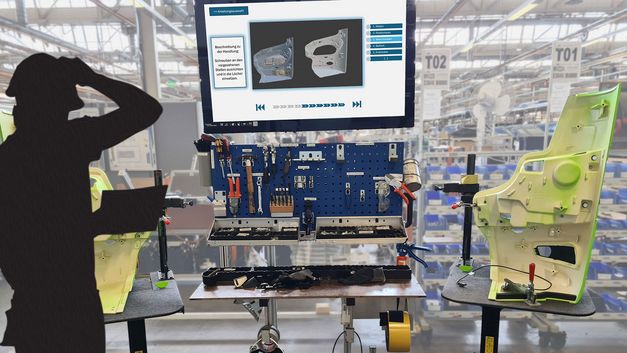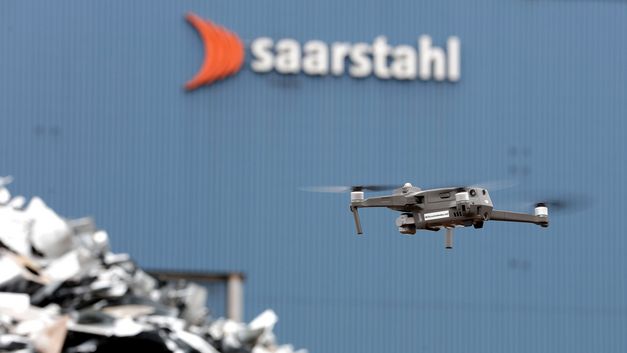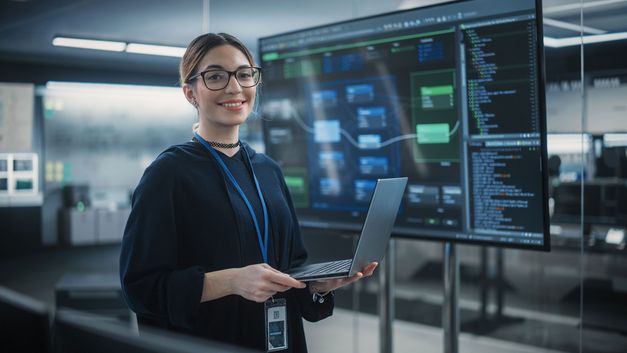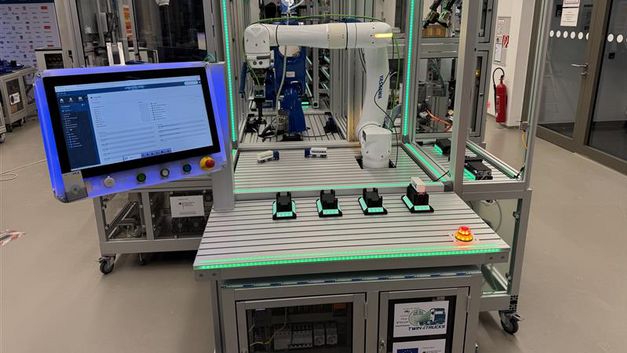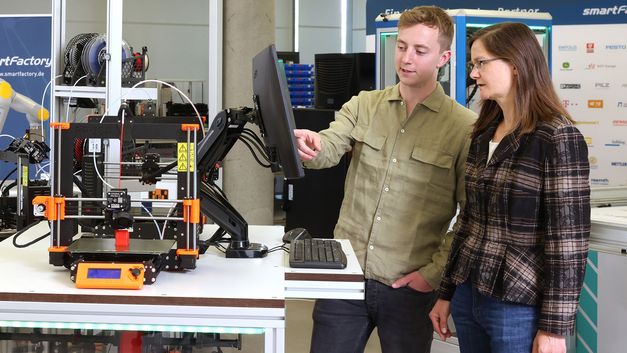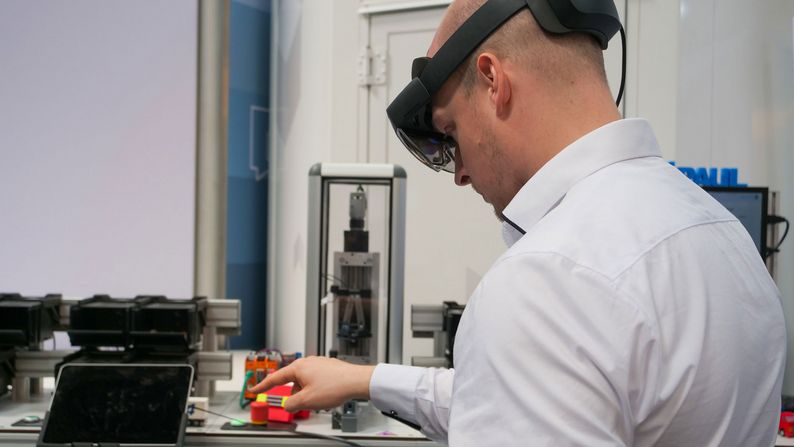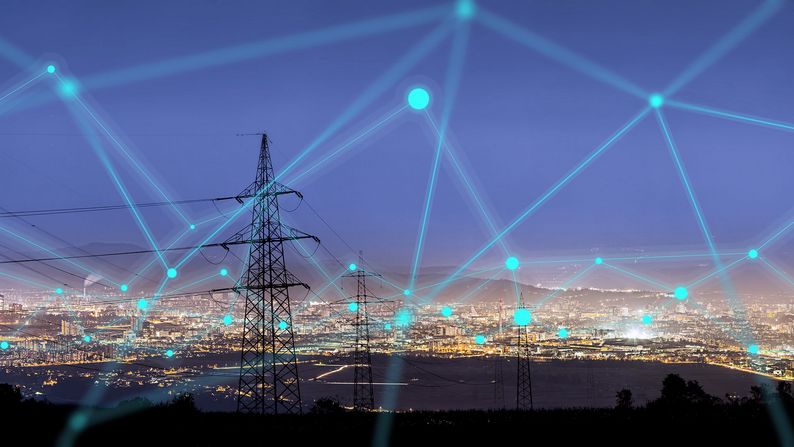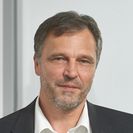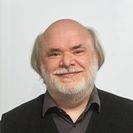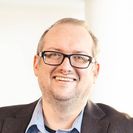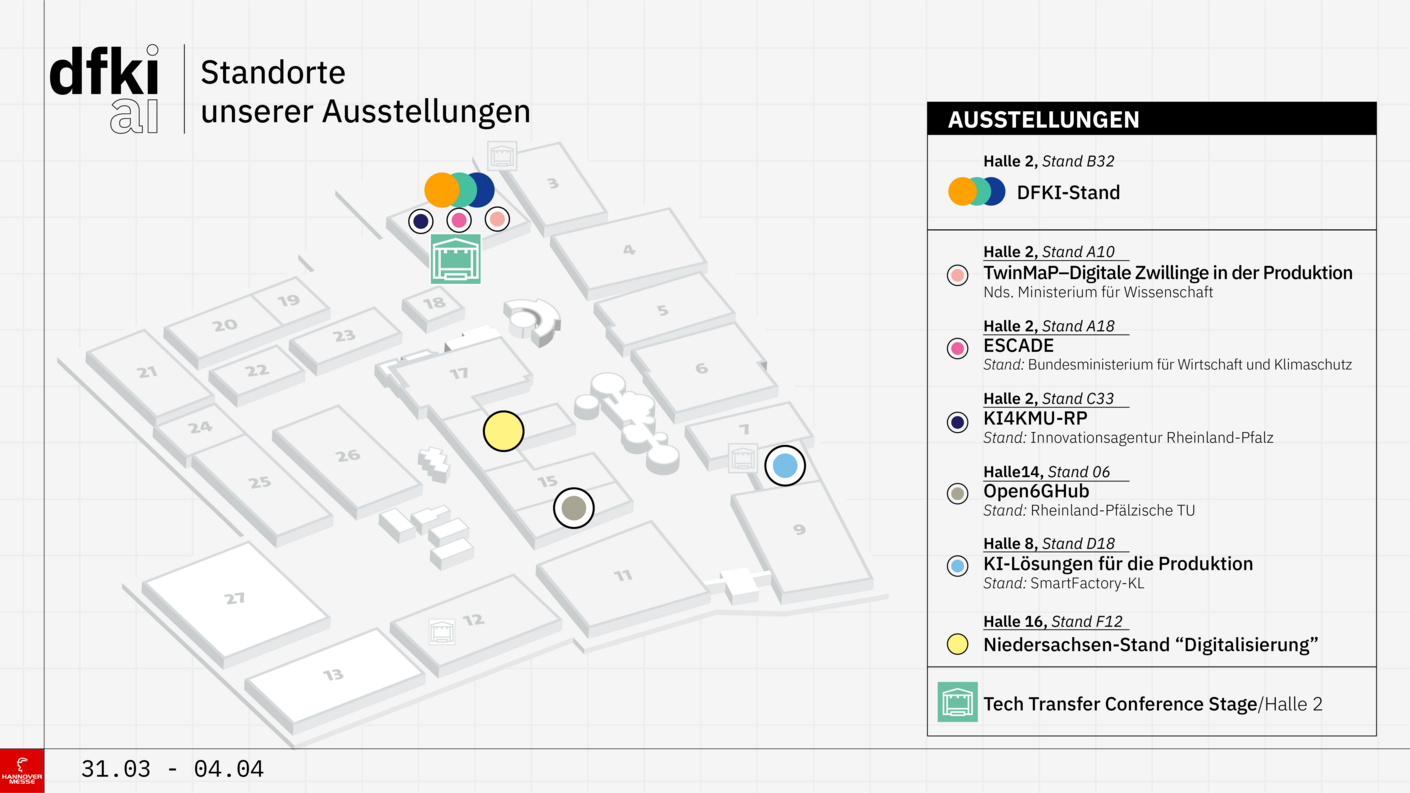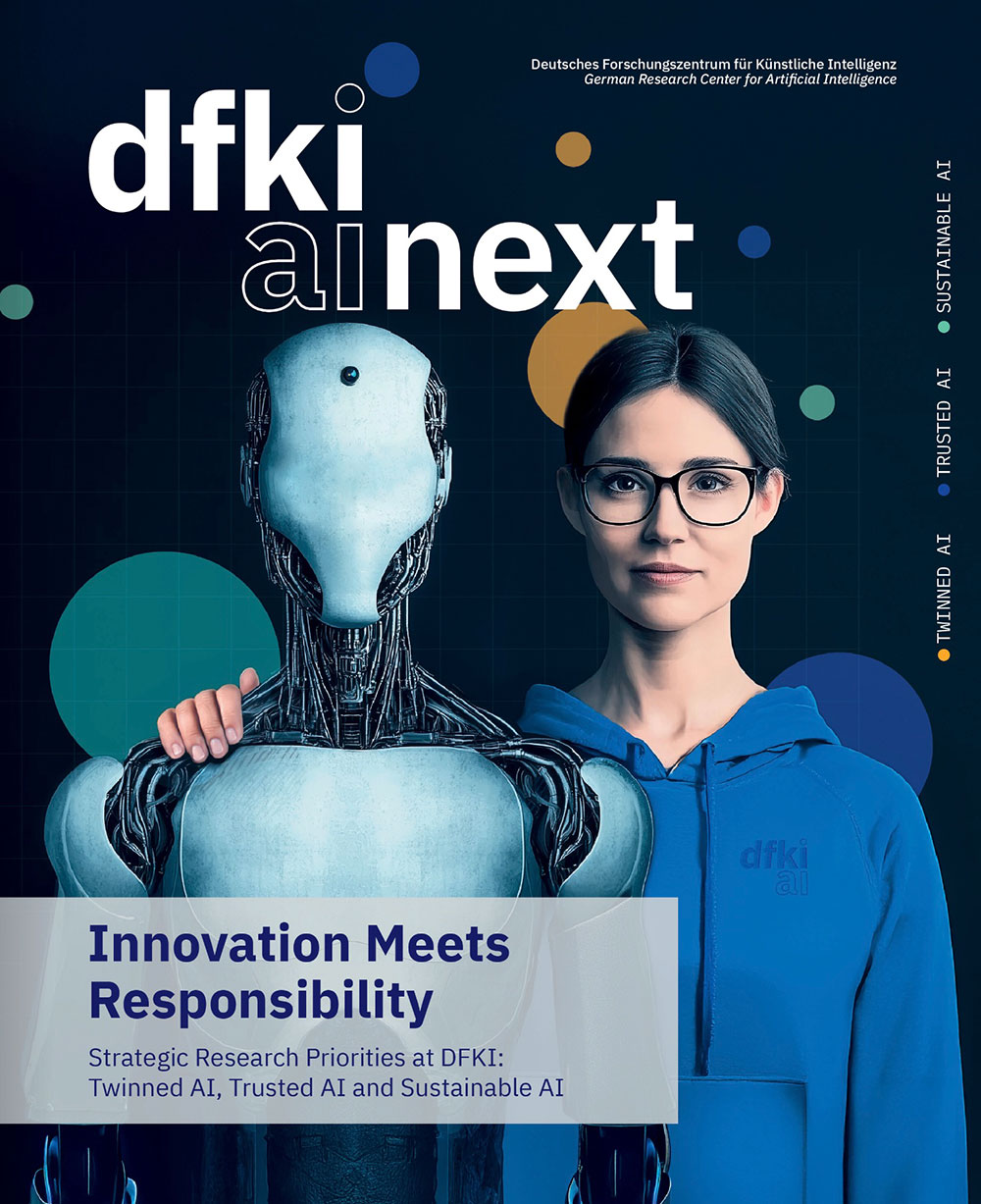
How can artificial intelligence transform the industrial value chain while remaining socially and ecologically responsible? The German Research Center for Artificial Intelligence (DFKI) will explore this crucial question at this year's HANNOVER MESSE. It will present groundbreaking developments in the three innovation fields of Twinned AI, Trusted AI, and Sustainable AI. These future technologies aim to fully harness the immense potential of AI and provide the industry with concrete starting points.
The video presents the visual digital twin of the DFKI stand at the Hannover Messe 2025. In the on-site demo, the digital twin is fed live data, including from an assistive robot with a Gen-AI connection, a worker with augmented reality glasses adjusting a door, and a remote-controlled humanoid robot. The assistive robot accesses the data in real-time and supports the worker in his tasks.
Discover interactive demonstrations, exciting expert talks, and hands-on exhibits that make the bridge between research and industry tangible. From explainable time series analysis to innovative quality management systems in automotive engineering and resource-efficient AI for medium-sized companies, we show how future technologies are already becoming a reality today.
Visit us in Hall 2, Stand B32, and let us work together to build a future in which technological excellence and social responsibility go hand in hand.
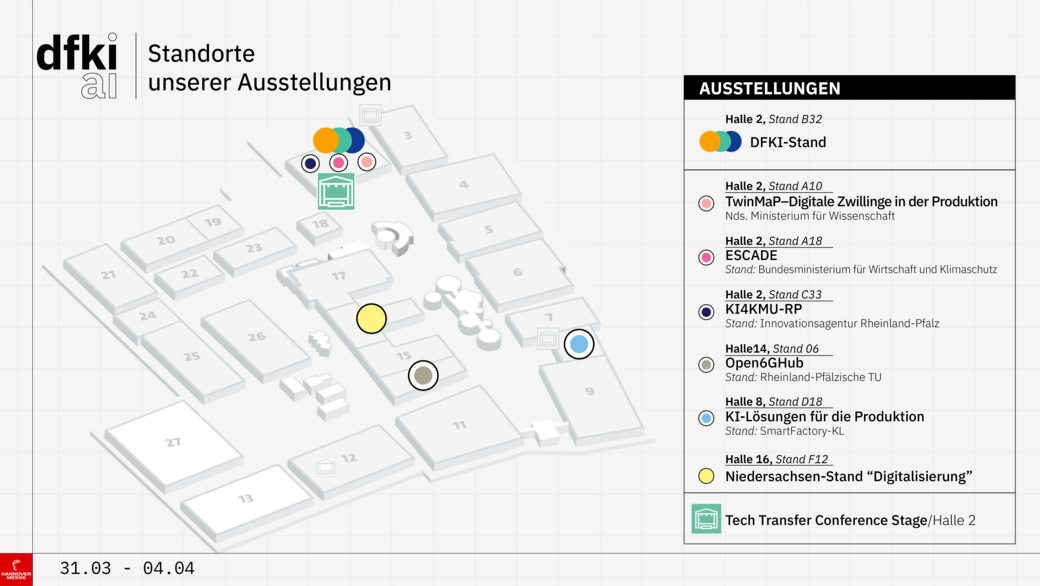
Monday, 31.03.25, 14:00-14:20 | Tech Transfer Conference Stage, Hall 2
Twinned AI – AI for the Digital Twin
Lecture by Prof. Antonio Krüger (CEO DFKI)
Twinned AI bridges the gap between human intuition and machine precision. By integrating insights from real-world interactions, we develop AI systems that comprehend and navigate the production environment like humans. This profound understanding fosters more effective collaboration, enhances efficiency, and equips machines with the ability to adapt in ways previously unattainable. Twinned AI will facilitate a transformative journey into a future where the potential of humans and robots is fully realized through shared experiences and understanding.
Monday, 31.03.25, 17:40-18:10 | Stand of BMWK, Hall 2, A18
Shared production in medium-sized companies: technologies, opportunities and business models
Lecture by Dr. Jonas P. Metzger (CEO Mittelstand-Digital Zentrum Kaiserslautern)
Tuesday, 01.04.25, 10:05-10:25 | Tech Transfer Conference Stage, Hall 2
Artificial Intelligence for Space Applications
Lecture by Prof. Frank Kirchner (Executive Director DFKI Bremen)
This talk will discuss advances in space robotics and AI, focusing on integrating intelligent systems into complex electromechanical systems to meet the requirements of space missions. Future milestones include the development of robots that can work autonomously with humans and other robotic systems, with AI being used for tasks such as the cooperative assembly of space structures or the autonomous repair of spacecraft. While the potential of these technologies is immense, bottlenecks such as limited computing resources, energy constraints, and the need for robust, fault-tolerant systems pose a significant challenge. The ethical and societal implications of deploying autonomous systems in space must also be considered to ensure safe and responsible use.
Tuesday, 01.04.25, 15:35-15:55 | Tech Transfer Conference Stage, Hall 2
Trusted AI – Innovation with Guaranteed Security
Lecture by Prof. Philipp Slusallek (Executive Director DFKI Saarbrücken)
Trusted AI solutions combine technology with human values such as safety, reliability, fairness, transparency, protection, and traceability. They enable close collaboration between humans and machines by explaining their decisions and remaining controllable at all times, thanks to the guaranteed properties of the underlying AI systems. This fosters trust, improves efficiency, and strengthens the innovative power of companies in the long term.
Wednesday, 02.04.25, 14:50-15:10 | Tech Transfer Conference Stage, Halle 2
Sustainable AI – Shaping AI's Influence on Environment, Economy, and Society
Lecture by Dr. Frederic Stahl (Head of the Research Department Marine Perception)
AI will play a crucial role in sustainability by enhancing decision-making and optimizing resources across all sectors. Sustainable AI seeks to develop robust methods for quantifying and shaping the multi-dimensional impact of AI on sustainability across environmental, economic, and societal aspects. By considering the entire life cycle of AI technologies - from development to reuse - Sustainable AI aims to establish ways to measure and assess the impact of AI, thereby contributing to the achievement of the United Nations Sustainable Development Goals (SDG).
Thursday, 03.04.25, 11:15-11:35 | Tech Transfer Conference Stage, Hall 2
Return on AI: Achieving New Efficiencies in SMEs through Lean Management and Artificial Intelligence
Lecture by Prof. Oliver Thomas (Head of the Research Department Smart Enterprise Engineering)
Digitalization and artificial intelligence have primarily been associated with innovation and enhancements in products and services in recent years. The focus has mainly been on companies' core processes. The current debate surrounding generative AI has fundamentally altered this perspective. Companies increasingly acknowledge that AI permeates all business areas - from production and administration to customer-oriented processes. For the first time, we can implement AI systems across departments at a reasonable cost to achieve immediate improvements in efficiency and quality. The key to this is combining best practices from successful AI projects with the expertise of local companies. In his presentation, Prof. Dr. Oliver Thomas will illustrate with practical success examples how companies - especially SMEs - can utilize AI profitably. Particularly in economically challenging times, AI presents enormous potential for immediate efficiency gains. With lean management and AI, companies can optimize their processes and secure sustainable competitive advantages.
Thursday, 03.04.25, 15:45-16:05 | 5G & Industrial Wireless Stage, Hall 14, Stand H06
Sustainable Technologies for Advanced Resilient and Energy-Efficient Networks
Lecture by Christoph Lipps (Team Lead Cyber Resilience & Security in the Research Department Intelligent Networks)
In the hyper-connected world and the all-electric society of tomorrow, the resilience, energy efficiency, sustainability and security of networks are a decisive factor and at the same time the critical backbone. By integrating cutting-edge technologies and innovative approaches, the SUSTAINET research project will design networks that are not only resilient and energy efficient, but also serve as platforms for a sustainable society. The project promotes the introduction of renewable energy and supports operators to act as prosumers in the energy market. With a strong focus on cyber security and communication continuity, it will ensure that networks continue to function reliably even in crisis situations. This project is a decisive step for Europe to achieve technological sovereignty and shape a sustainable digital future.
Tuesday, 01.04.25, 12:10-12:40 | Tech Transfer Conference Stage, Hall 2
IoT from Space / AI for SPACE: Risks and Opportunities
Panel discussion with Prof. Frank Schäfer (Fraunhofer Aviation & Space), Matthias Wachter (BDLI) and Prof. Frank Kirchner (DFKI). Host: Janine Mehner
Thursday, 03.04.25, 11:15-11:35 | Lower Saxony Stand "Digitalization", Hall 16, F12
Introducing DFKI Niedersachsen
Leading researchers from DFKI Niedersachsen present their work. Current projects and opportunities for cooperation will be presented in short presentations and talks at the Lower Saxony stand "Digitalization".
Press Contact
Jennifer Oberhofer
Phone: +49 541 386050 7088
Jennifer.Oberhofer@dfki.de
Heike Leonhard
Phone: +49 681 85775 5390
Heike.Leonhard@dfki.de
